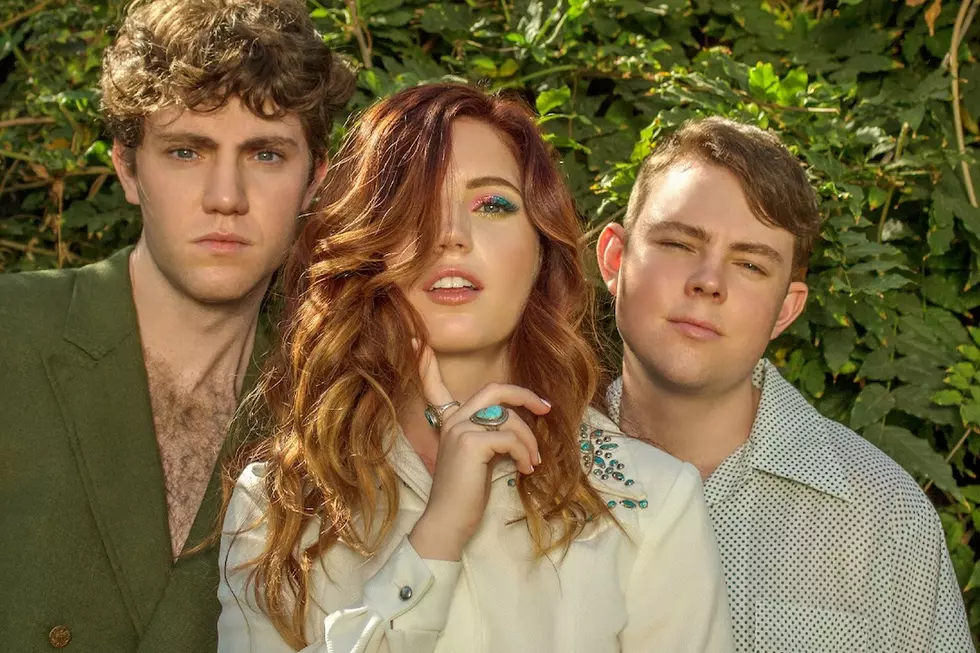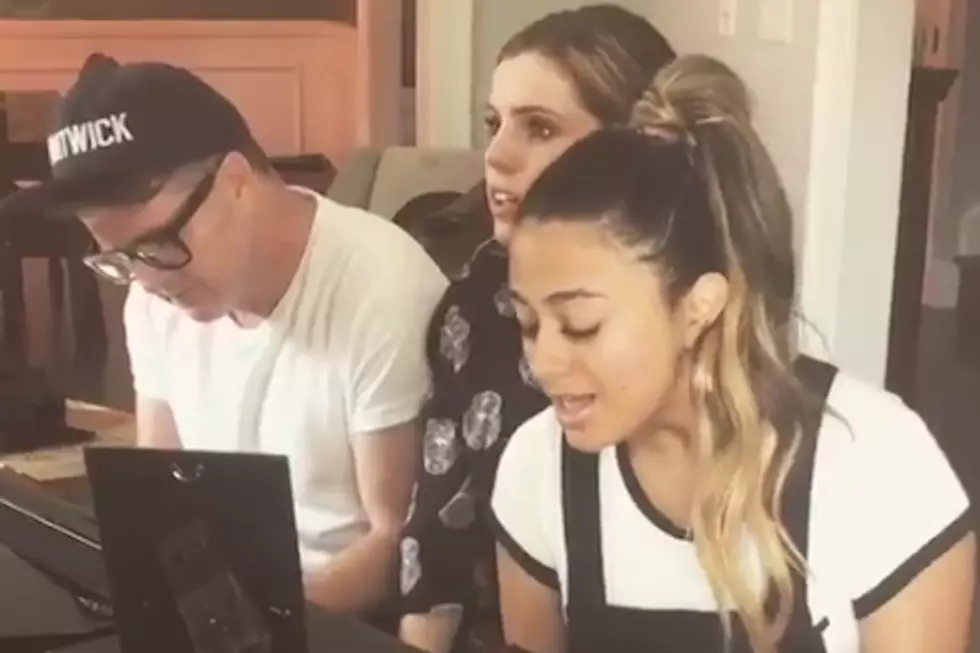
Echosmith Explore the Good, Bad and Ugly of Adulthood on ‘Lonely Generation’
The members of Echosmith were teenagers when they wrote and recorded their debut album Talking Dreams, and in the years that followed the siblings Sierota have gone through some major life changes. Aside from growing older, Sydney (lead vocals) and Noah (vocals, bass) got respectively married. They also experienced the downsides of adulthood — dealing with grief and loss.
As the Sierotas navigated their lives, inspiration struck time and time again. Wanting to ensure their sophomore album was as complete as it could be, they delayed its release several times. The move led to some of Lonely Generation's most heartfelt songs: "Follow You," a track Sydney wrote and a recorded in the middle of the night as a gift to her husband on their wedding day, and "I Don't Want to Lose Your Love," a last-minute song written by Sydney and Noah. The new record also finds the band grappling with hard times and feeling more vulnerable than ever before, resulting in emotional tracks like "Everyone Cries" and "Stuck."
"Coming of age in general is such a process that I think everybody experiences," Sydney says. "For us it really feels like it’s the same band at the core of it, but we’re older and we have a lot more experience with life in general. That means we’ve gotten to experience grief in a way that we never have experienced, but also experience love and excitement in a way that we never have before. I think there’s a lot more depth to the music and the lyrics in this album."
Sydney chatted with us about why now's the right time for Echosmith to share their sophomore effort with the world, out Jan. 10, and why these songs are particularly special to the Sierotas, both as musicians and as a family.
You’ve released a handful of singles and an EP since your debut album Talking Dreams, but your sophomore album experienced a number of delays. What makes now the right time to release it?
To be honest, we pretty much made two albums' worth at least of music, and we really just wanted to make sure that each and every one of us felt so good about every single song. We didn’t want it to necessarily be perfect, because nothing is perfect—it’s art—but we wanted it to feel right to us as artists.
We actually wrote songs earlier this year, right before we turned in the album, because we just had this extra burst of inspiration since I got married and we’ve all just been growing a lot in the past few years, because we’re so young and in those really formative years. We have so much more to say with our music than we’ve ever had to say, so I’m really glad that we took this time. Now is the right time to release it because some of these songs would’ve never existed if we put it out a year or two years ago.
The album sounds like it is so personal to your family, so that probably made it even more special to make it the way you wanted to.
Exactly, and we wanted this album to feel personal and feel like a diary to our fans about what we’ve been going through—the good, the bad, the in-between. I think it’s important to address all of that, even though it feels hard sometimes.
The album documents Echosmith’s coming of age both as a band and as a family. What do you think is its most important message?
I would say the most important message is to embrace life for what it is and go through all the emotions that you’re feeling and make sure to not ignore those. To really go through it, but at the end of the day realize it can and it will get better.
There’s a lot of songs on the album that are happy and excited about life, but there’s also songs that are a lot more serious and a lot more emotional in a more sad way, and that’s okay because that’s just what we were going through. That’s why we tried to put different kinds of songs on this album—to show the different emotions you can feel throughout life. I think it’s so important for people to be able to take away the feeling that they’re important and their emotions and their stages of life are so important.
We want to always bring hope and love to people through our music, and I think being honest with ourselves about what we’re dealing with and what we’re going through really accomplishes that, because it tells everyone, no matter who they are, that they’re valuable and their story is so valuable, and that there is hope in life. We want our fans to really get that from our music, and feel a little less alone.
What about this album makes you most proud?
I’m just proud of what we accomplished as a family. We worked so hard for so long on this, and it just turned out even better than I could’ve imagined. It really just feels so great that something you spent so much time on and put so much effort into actually turned out really well and is something that we can be proud of, and feel really proud of together — having that camaraderie is really special and important as a band and as a family.
I’d also say being vulnerable was hard, because I tend to get in this habit of telling everyone I’m okay, and I really learned it’s okay to acknowledge the other stuff too and really work through that and be real about it. I’m proud of myself for going there lyrically and being vulnerable, even though it felt really scary to do that. That’s something I’m working on in my personal life as well—being vulnerable with friends and family when it’s hard to do that.
Best Albums of 2019
More From PopCrush







![Taylor Swift’s Squad: A Look at All ‘1989 World Tour’ Guests [GALLERY]](http://townsquare.media/site/252/files/2015/08/Taylor-FEAT-ChristopherPolk.jpg?w=980&q=75)

